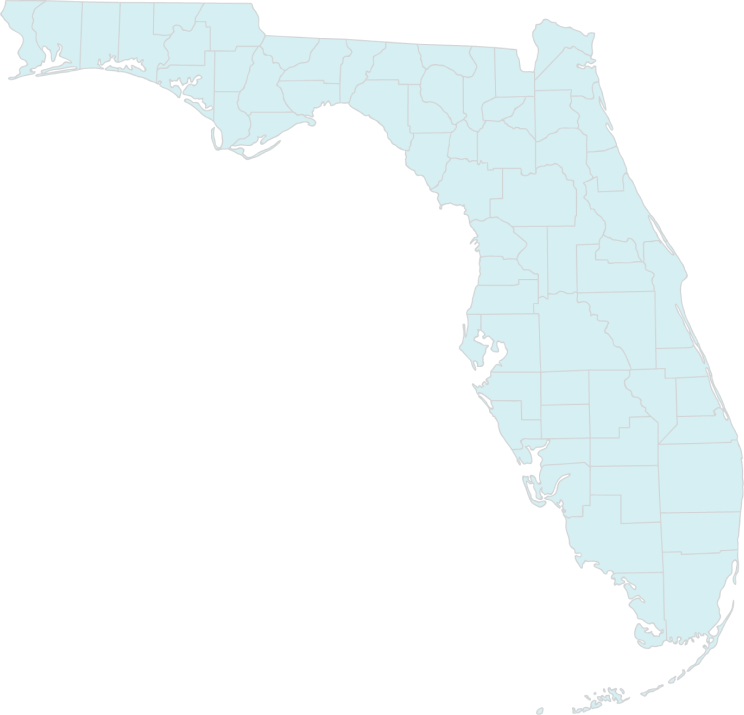
Experiencing a personal injury can be overwhelming, both physically and emotionally. If you’re facing mounting medical bills and time away from work, understanding your legal options is crucial. One of the most important factors when pursuing compensation is the statute of limitations—the time frame in which you must file your lawsuit. Missing this deadline could prevent you from obtaining the compensation you deserve.
In Florida, the statute of limitations varies depending on the type of injury claim. In this post, we’ll explain these deadlines, the importance of taking action quickly, and how The Nurse Lawyer, P.A. can guide you through the legal process.
What Is the Statute of Limitations?
The statute of limitations sets the legal deadline for filing a lawsuit after you’ve been injured due to someone else’s negligence. This law ensures that claims are brought within a reasonable time, preventing evidence from becoming stale and memories from fading. If you miss this deadline, your case will most likely be dismissed, leaving you unable to recover compensation for your injuries, medical expenses, lost wages, and other damages.
Personal Injury Claims: Two-Year Deadline
In Florida, the statute of limitations for most personal injury claims—including car accidents, slip and fall incidents, and other cases of negligence—is two years from the date of the injury. This means you have two years to file a lawsuit after the injury occurs. Waiting too long to act could not only affect the availability of evidence but also your ability to hold the negligent party accountable.
This two-year window is essential for seeking compensation for medical bills, ongoing treatment, lost wages, and pain and suffering. Acting promptly allows your attorney to build a stronger case, gathering evidence and negotiating from a position of strength.
Medical Malpractice in Florida: Understanding the Timeline
Medical malpractice claims follow specific rules in Florida. Like general personal injury claims, the statute of limitations is two years, but this period begins either when the injury occurs or when the injury is discovered. Medical injuries aren’t always immediately apparent. In cases where the harm was not easily detectable, the statute can be extended to up to four years from the date of the malpractice under what is known as the "discovery rule."
Notably, Florida law imposes an important cap: no medical malpractice claim can be filed more than four years after the actual malpractice occurred, regardless of when the injury was discovered. The only exceptions to this rule are cases involving fraud, concealment, or intentional misrepresentation by the healthcare provider. In such instances, the statute of limitations can be extended, allowing victims additional time to file.
When Does the Clock Start?
In most cases, the statute of limitations begins on the date of the injury. For example, if you were in a car accident on June 1, 2024, you typically have until June 1, 2026, to file your personal injury claim.
However, some situations aren’t as clear-cut. If you were injured due to exposure to toxic chemicals or as a result of medical negligence, you may not discover the harm right away. In those cases, the statute of limitations may begin when you discover (or should have reasonably discovered) the injury. This can be crucial in complex cases like medical malpractice, where symptoms may take time to appear.
Important Exceptions to the Statute of Limitations
While the general rule in Florida is a two-year statute of limitations for personal injury claims, there are several exceptions:
- Minors and Incapacitated Individuals: If the injured person is under 18 or mentally incapacitated, the statute of limitations may be paused or “tolled” until they reach legal adulthood or regain capacity. This ensures that minors or incapacitated individuals have a fair chance to take legal action once they are capable of making decisions for themselves.
- Government Entities: If your injury claim is against a government entity, such as a city or state agency, special rules apply. You must file a notice of claim with the appropriate government entity within three years of the injury. Government claims are subject to different procedural requirements, so it’s essential to consult an experienced attorney who is familiar with these rules.
- Fraud or Concealment: If the defendant intentionally concealed their role in the injury, such as a doctor hiding evidence of medical negligence, the statute of limitations may be extended beyond the four-year limit. This ensures that the healthcare provider’s deceit does not prevent you from seeking justice.
Why It’s Important to Act Quickly
While Florida law gives you two years to file most personal injury claims, acting sooner rather than later is always in your best interest. Here’s why:
- Preservation of Evidence: Key evidence, like medical records, accident reports, and witness statements, may become harder to obtain over time. Acting quickly helps your attorney gather and preserve this evidence while it’s still fresh and available.
- Stronger Negotiation Position: Insurance companies often offer fairer settlements when they know you have time to file a lawsuit. If they sense that you are nearing the deadline, they may try to push for a lower settlement, hoping you’ll feel pressured to accept less than you deserve.
- Peace of Mind: Once you’ve secured legal representation, you can focus on healing and recovery, knowing that your case is being handled professionally and within the required time limits. Taking swift action ensures you won’t have to worry about missing critical deadlines.
How The Nurse Lawyer, P.A. Can Help You
At The Nurse Lawyer, P.A., we understand the stress and uncertainty you may feel after a personal injury. Our firm, led by attorney Maryann Furman, RN, Esq., brings a unique combination of medical and legal expertise to every case. This dual perspective allows us to understand the full scope of your injuries, advocate effectively on your behalf, and provide compassionate, knowledgeable guidance throughout the legal process.
We’ll work diligently to ensure your case is filed within Florida’s statute of limitations and that you acquire the compensation you deserve. Whether you’ve been injured in a car accident, slip and fall, or due to medical negligence, we’re here to fight for your rights and hold the responsible parties accountable.
Don’t Wait—Protect Your Rights Today
Florida’s statute of limitations plays a critical role in your ability to seek compensation after an injury. Whether it’s the two-year deadline for personal injury claims or the specific rules governing medical malpractice, understanding and adhering to these legal timeframes is essential. If you or a loved one has been injured, don’t wait until it’s too late—seek legal assistance as soon as possible.
The Nurse Lawyer, P.A. is here to help you navigate these complex legal timelines, ensuring your rights are protected every step of the way. Contact us today for a free consultation, and let us provide the support you need to pursue your personal injury claim in Florida.




